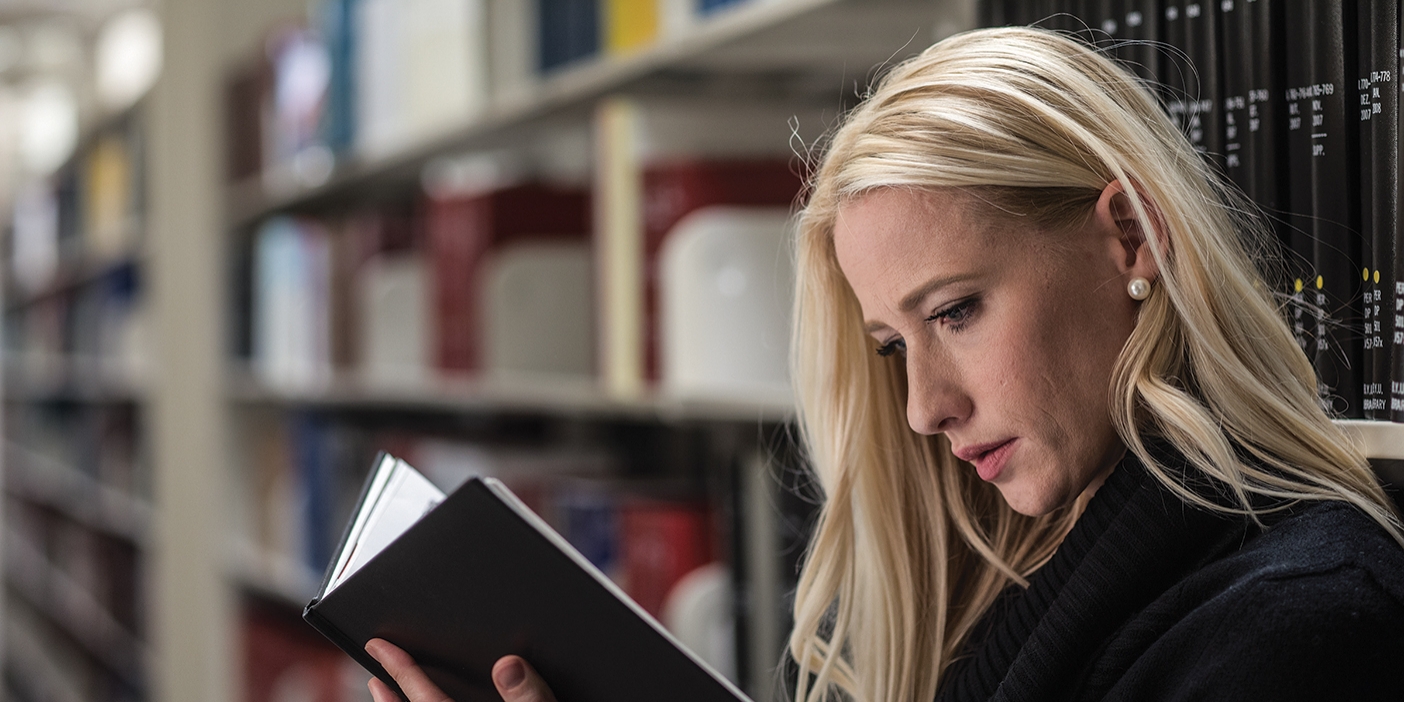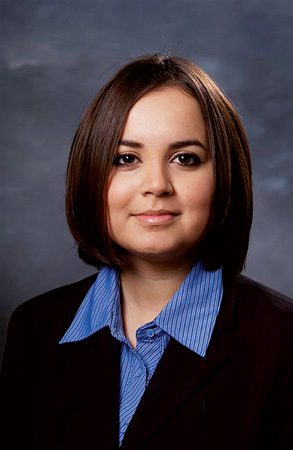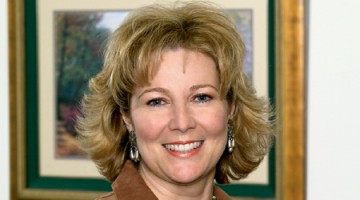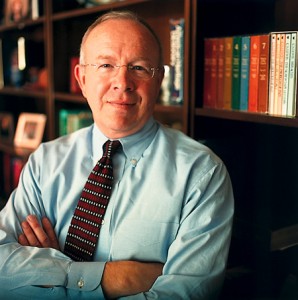
Gary C. Cornia
With recent changes in U.S. tax policy, tax reform is in the air. But even the most touted tax revisions can bring only marginal relief. Unless drastic changes take place, there will always be a sizable chunk missing from the average American’s paycheck, and the average American will always do a sizable amount of complaining about taxes. Yet for Marriott School professor Gary C. Cornia, a considerable tax bite is something to feel good about.
“As individuals’ and countries’ incomes increase, they want more government services,” says Cornia, president-elect of the National Tax Association. “They want adequate police and fire protection, better libraries, better schools. So while paying taxes is painful for all of us, we benefit from appropriately provided public services.”
Cornia’s career has been something of a quest to help governments provide appropriate services through appropriate taxation. He has made major contributions to public finance in Utah, and his property tax expertise has been tapped by leaders from nations as diverse as Bosnia and Brazil, Cuba and the Czech Republic. His is also a leading voice in the debate over taxation of Internet sales (see sidebar).
The Stewart Grow Professor of Public Management, Cornia has taught at BYU since 1980, taking a leave from 1983 to 1986 to serve as Utah state tax commissioner. For the past eight years, he has chaired the Utah Tax Review Commission, a volunteer group that analyzes tax policy. “You’re appointed by the governor, and you do it because you just love to talk about taxes,” he says with a smile.
Proper Property Taxes
Property taxes are the primary focus of Cornia’s research and consulting. A recent study (coauthored with Lawrence C. Walters, ’81) considers the ways electric utility deregulation might affect property tax revenues and, consequently, public school funding. Published in the spring 2001 Journal of Education Finance, the study warns that the price reductions expected with deregulation could significantly reduce the taxable value of utilities—and devastate school districts that rely on property taxes paid by those utilities.
Cornia sees the property tax as a key source of fiscal autonomy for local governments. And while he has conducted property tax studies for state governments in Colorado, Idaho, Ohio, and Wyoming, his expertise is increasingly in demand overseas.
“Professor Cornia is a leading voice in promoting local revenue diversification, especially the property tax, in transitional and developing nations,” says C. Kurt Zorn, professor and associate dean in the School of Public and Environmental Affairs at Indiana University. “His firsthand knowledge as a property tax administrator in Utah plus his extensive academic grounding makes him unique.” Zorn and Cornia have worked together on several projects, including consulting in Bosnia and Herzegovina.
“We’re discovering that there’s a relationship between decentralization of government and economic development,” Cornia says. “In the transitional economies in central and eastern Europe, those economies that appear to be doing better give autonomy to the local and regional governments. And the most appropriate way to do that is to develop a property tax.”
Though the socialist system had its share of taxes, none of those revenues was controlled locally. “Everything went to the center and then filtered down with all kinds of strings attached,” Cornia explains. “Because the property tax is a local tax, it comes with no strings, and if they want to spend more on education or on police, they can. So the property tax is key not just to fund local government but to set up the right sort of environment for economic development. I see it as a critical part of bringing democracy and a market economy to transitional and developing countries.”
A Taxing Schedule
Tax consulting in formerly socialist countries is a challenge, Cornia says. In the Czech Republic, for example, “they’re now trying to figure out ways to establish the market value for the land, and it’s very difficult to sell property that was formerly owned in common.” Another problem is the lack of records. “During the socialist period records were not maintained about who owned land—this is particularly true in Bosnia,” he says.
Cornia has faced some of his most challenging tax problems in Bosnia. “Trying to figure out how to implement a property tax system that would be acceptable to the Serbs and the Bosnians and the Croatians continues to be a perplexing problem,” he says. “We can hardly get the people to meet. In every nation the biggest obstacle to reform is the politics. But that is amplified by the problems in Bosnia and Herzegovina. It’s also the place where, if we were lucky enough to be successful, we could have probably the greatest impact because the property tax would allow ethnic groups to have fiscal autonomy.”
In February 2001 Cornia’s international work took him, along with other American scholars, to communist Cuba to advise leaders on land-value issues. Even in Cuba, he says, “there is a very, very modest transition to a market-based economy when they do joint ventures with European and Latin American companies. The one thing the Cubans can contribute to the joint venture is land, but they’re not sure how to put a value on their land.”
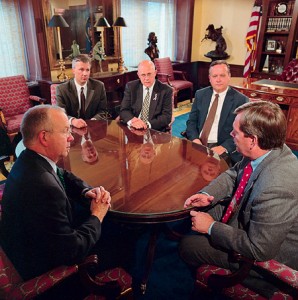
Members of the Utah Tax Reciew Commission, (clockwise, beginning with front left) chair Gary C. Cornia, David J. Crapo, ’84, M. Keith Prescott, ’78, and Bryant R. Howe, ’82, regularly advise Utah governor Mike Leavitt.
Cornia also trains leaders of developing and transitional nations in academic settings. In May 2001 he and Walters led a two-day workshop in Pôrto Alegre, Brazil. “We provided training on fiscal decentralization and the property tax to about 300 mayors or finance directors from almost every country in South America,” Cornia says. In July 2001 he taught a similar seminar at the International Center for Land Policy Training and Research in Taipei, Taiwan.
Joan Youngman, a senior fellow at the Lincoln Institute for Land Policy in Cambridge, Mass., has worked with Cornia for more than 10 years. “Gary is one of the most generous people in the field of taxation—willing to travel long distances under difficult conditions to make multiple presentations and join in numerous discussions,” she says. “This has allowed his influence to reach many people and countries, with long-lasting benefits for improved tax policy.”
Mary Lynn Johnson is a homemaker living in Mapleton, Utah.
TAX HOLES IN THE WEB
While the property tax is his specialty, BYU professor Gary C. Cornia also considers sales tax conundrums—specifically, tax issues arising from Internet purchases. “Gary was among those who pioneered the discussion concerning the taxation of electronic commerce,” says Richard B. McKeown, ’74, chief of staff to Utah governor Michael Leavitt. “There has not likely been a more important tax policy issue in the last 50 years, and Gary has helped shape the debate and its conclusions.”
Most people don’t pay sales taxes on Internet purchases. “Individually that may seem like an awfully good outcome because it means I’m paying less in taxes,” Cornia says. “But collectively it means that places like Utah or California could lose 5 to 8 percent of their state revenue. And that means fewer teachers, fewer classrooms, and fewer police. Not to mention the enormous inequities it creates for local businesses who have to compete against businesses that don’t collect the sales tax.”
Such concerns prompted creation of the National Tax Association Communications and Electronic Commerce Tax Project, which Cornia cochaired from 1996 to 2000. Though the group reached few points of consensus, “the long and short of the analysis is that states need to simplify their sales tax systems,” he says.
Cornia has continued to investigate solutions for the revenue shortfalls that may result from untaxed Internet sales. Some of his recent research, published in the December 2000 issue of the National Tax Journal, analyzes the feasibility of implementing a single-rate sales tax—and concludes that a single statewide rate would be possible in some states but politically implausible in all.







